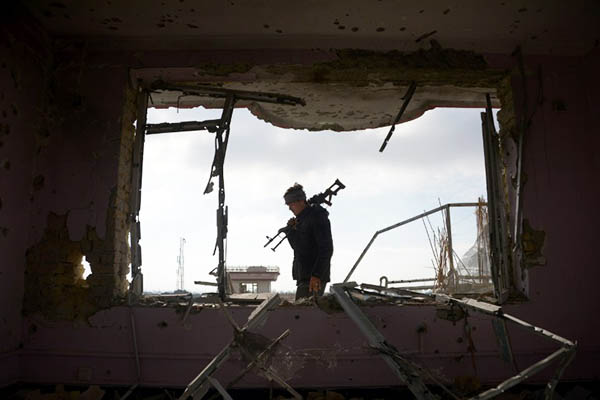
Farshad Usyan—AFP
Militants attribute recent lull in attacks to fasting month of Ramzan.
The Afghan Taliban on Tuesday rejected assertions that the movement had been weakened after its leadership transition, saying the recent lull in operations was due to the holy fasting month of Ramzan.
The Taliban announced Haibatullah Akhundzada as their new leader in May, elevating a low-profile religious figure with limited military experience after officially confirming the death of previous supremo Akhtar Mansour in a U.S. drone strike. The militants, waging a bloody insurgency to topple the Western-backed Kabul government, inflicted heavy losses last year on demoralized Afghan forces—including briefly capturing a provincial capital in a stinging blow.
But Afghan and NATO officials have hailed growing success against the Taliban since U.S. forces were last month granted greater powers to strike at the insurgents, as President Barack Obama vowed a more aggressive campaign.
Officials have also cited the apparent fragmentation within the Taliban since Mansour’s death as one of the reasons the insurgents have been slow in intensifying their traditional fighting season, which began in April.
Taliban spokesman Zabihullah Mujahid angrily dismissed those claims on Tuesday in a phone call to media organizations, saying the reported drop in insurgent activity was due to Ramzan, which ended earlier this month.
“The invading American forces and the puppet Kabul government have misunderstood this situation, thinking the mujahideen have become weakened or the change in leadership has created problems,” said Mujahid. “Now that the month of Ramzan and subsequent Eid holidays are over we have resumed our operations, which will continue with full force and vigor.”
The Taliban launched offensives this week in the northern provinces of Kunduz and Badakhshan, though Afghan officials said they successfully repelled the insurgents. The Taliban also claimed responsibility last month for a twin suicide attack that killed 30 Afghan police cadets in Kabul in a major blow for the government.
Obama earlier this month put the brakes on the U.S. pullout from Afghanistan, saying 8,400 troops would remain in the war-ravaged country into next year to help tackle the threat from a resurgent Taliban. Obama, who was elected in 2008 on a promise to end America’s longest war, had previously vowed to slash the U.S. troop presence from its current level of 9,800 to 5,500 by 2017.
